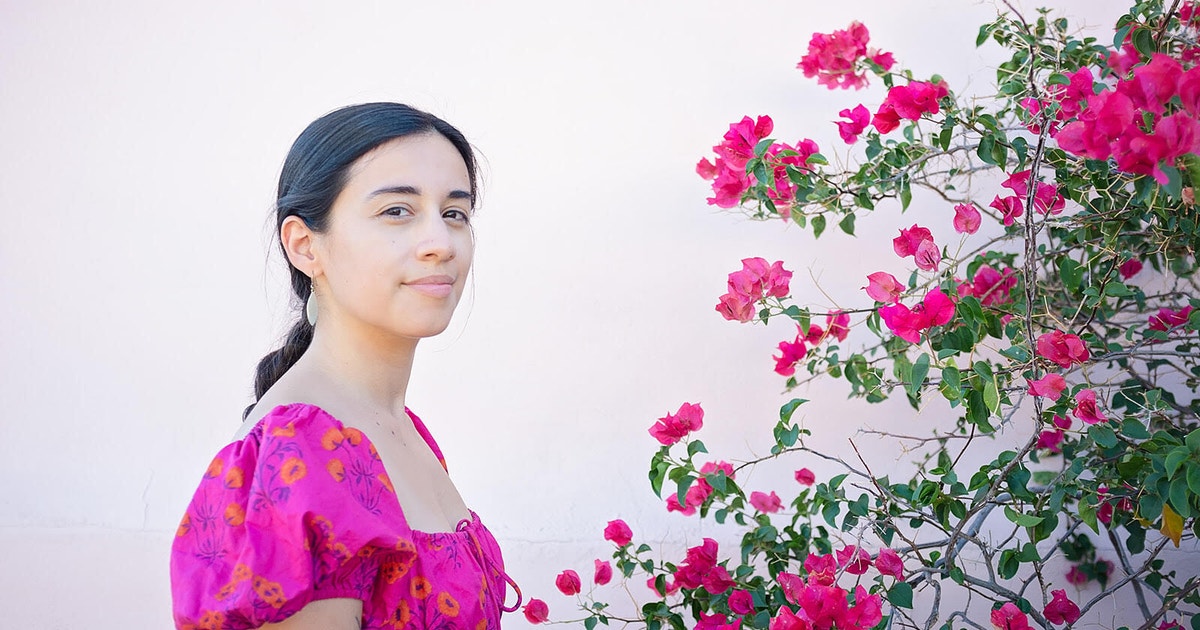In Mexico City, Oma Villagómez de Olivares shared with her family that if she could ever come back to the world after her death, she would reincarnate as un colibrí, a hummingbird. Two generations later, Sam Olivares-Mejia poured nectar into the hummingbird feeders at Warner Parks Nature Center in Nashville, Tennessee. She paused to trace the spots of iridescence as they flicked through the air to lap up the sugared water, and she felt an intense connection to the tiny birds.
At the time, she didn’t know her paternal grandmother’s wish, but she knew that her appreciation for the hummingbirds was bound up in something larger: a profound sense of place, a passion for nature, and a drive to make the outdoors, and data about it, more accessible.
These days, Olivares-Mejia is an Audubon Dangermond Fellow, using her background in programming, computational biology, and environmental science to support data management and visualization projects on Audubon’s Enterprise Geographic Information System (GIS) team. “Part of the reason I joined Audubon was its mission to conserve the places birds and people need,” Olivares-Mejia says. “All of the spaces that I’ve valued growing up have been surrounded by nature. I think that’s why I’ve had such a strong call to protect it.”
Those ties started early in Nashville, where Olivares-Mejia was raised. The lush, rolling hills of her hometown, the daily walks her family took in parks and around the neighborhood, and the summer homework her father assigned her, reading and summarizing old National Geographic magazine articles, sparked and fed her love for the outdoors. An innate awareness of and curiosity about her surroundings cemented her connection to place. As a child, she sketched out intricate maps of the buildings she was in, delighting in the process of translating her spatial awareness into imagery. When she was older, she roamed neighborhoods, and the world, through Google Maps, her favorite app.
She made sure her studies paired her fascination with data and her desire to connect more people to the outdoors. She majored in environmental studies, minored in biology, and picked up classes in programming and computational ecology. She quickly realized that the quality of environmental programs, policies, and communications depended on the quality and accessibility of the data behind them.
“Data only serves a purpose if you’re able to access it,” she says. “There’s so much information out there and so many ways to interpret, analyze, standardize, and store it. Making data digestible to support programs that connect people to their environment is something that really drives me.”
While interning at Warner Parks Nature Center, she streamlined data for their Bird Information Research and Data Program, and compiled equity, diversity, inclusion, and belonging resources. As a student researcher, she collated land use histories of forested sites within the National Ecological Observatory Network. Following graduation, she moved to Arizona after accepting a position as a GIS Assistant with the National Park Service’s Sonoran Desert Network, through the Scientists in Parks program.
Although she is still early in her Audubon fellowship, she has already supported a dashboard for the Bird-Friendly Communities team to visualize policy wins across the United States, and played a critical role in evaluating data and building data intake automations to launch CHIRP (Conservation Hemispheric Impact and Insights Reporting Platform), an internal reporting platform that tracks conservation actions across Audubon’s hemispheric network.
Thinking long-term, one of Olivares-Mejia’s core ambitions is to create belonging for people in the outdoors and in STEM professions. As a student, she experienced the discomfort of leaning into programming, a line of study that can seem unwelcoming and intimidating to people who are underrepresented in the field. Now that she’s graduated and becoming established in her field, she is motivated to create more equitable access to the tools and skills she works with. “I want to empower people to use the tools available to them and not doubt themselves. Coding and technology feel very gatekept and there’s a barrier to access, specifically for groups underrepresented in STEM. I want to help break down those barriers and make it easier for people to learn.”
The desire to create belonging is also rooted in her experiences navigating her family heritage. Olivares-Mejia knows intimately the importance of learning about, cultivating, and honoring the personal and communal relationships that people have with their environments. After spending years living in the United States with frequent visits to Mexico, she experienced her move to the Sonoran Desert as a kind of homecoming.
“Living in Arizona is the first time that I’ve been able to experience my Mexican-American heritage in one space. I’d always been bouncing between these places, trying to create connection in both,” she reflects. “Wherever I go next, I want to support people’s connection to place, to protect the spaces that are meaningful to them, and to facilitate people’s access to the outdoors, which can be life-changing.”

